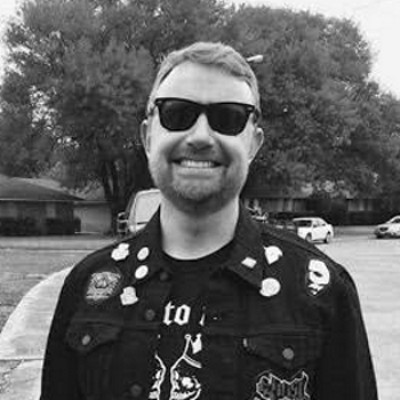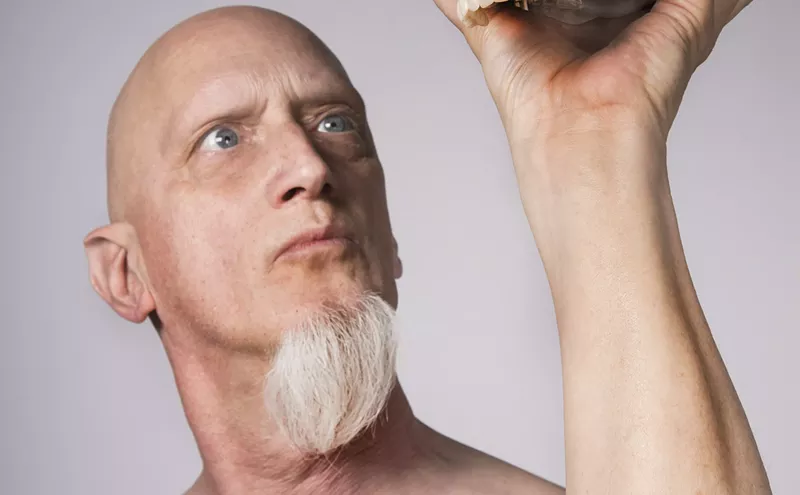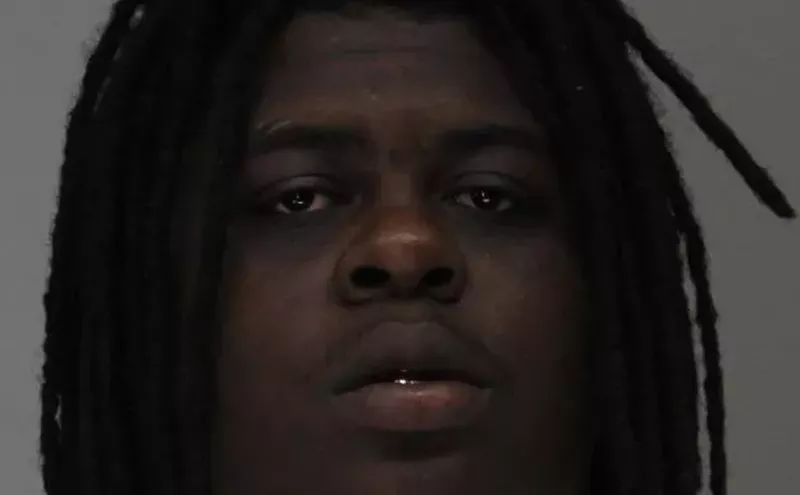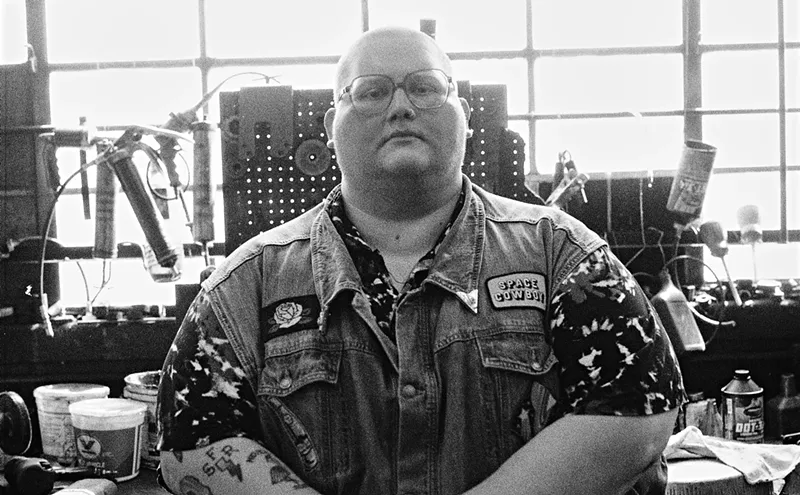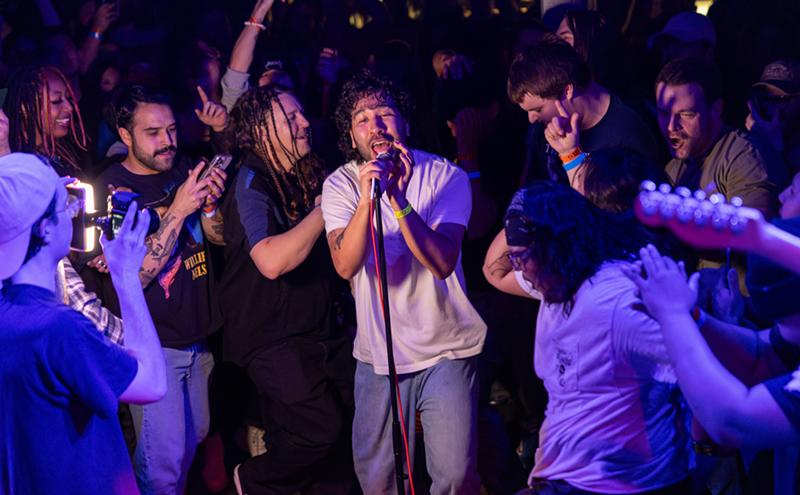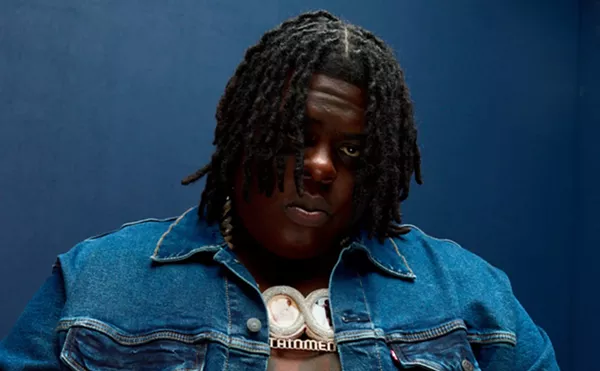It's a good time to be a fan of live music in Dallas. With the smashing success of The Bomb Factory's reopening last weekend, it's clear that the local scene, and in particular its hub in Deep Ellum, is the strongest it's been in ages. Thousands of people flocked to the revived venue to enjoy performances from Erykah Badu, Sarah Jaffe and the Toadies, with lines wrapping around the block to get in.
The scenes from weekend were enough to get older fans to reminisce about the good old days of the neighborhood, but they're only half right. In a lot of key ways, the Deep Ellum of today is far better than the old one we spend our times glorifying. Just ask the people who are happy to simply have an air conditioning unit in The Bomb Factory.
See also: The Bomb Factory Made a Stunning Debut in Dallas on Thursday Night July Alley is a Deep Ellum Enigma That May Not Be Long for This World
If you had told the average concertgoer with a Blogger profile in 2007 that The Bomb Factory would return, along with other critical Deep Ellum venues, you would have been laughed at and called a dreamer in denial of reality. The area has come a long way since those days when many people declared the area "dead."
Previous mayors made Deep Ellum's future in doubt for years. Obtaining Special Use Permits and adhering to code restrictions made it very hard to keep businesses open and getting new ones to open. The concept of having venues of all kinds of sizes in one area was starting to go away. Especially when the Gypsy Tea Room closed, things seemed dire. Add in high crime rates and it was not a surprise to hear about a possible solution that would completely redevelop the area with more apartment complexes, shops and high-rise office buildings.
But that didn't happen. The Gypsy Tea Room was filled by The Door without much change in layout, aside from moving the bar in the ballroom from the middle of the floor to the wall. Club Dada reopened with a similar layout change. Still, a wave of nostalgia had set in, and you couldn't blame people for longing for what Deep Ellum was in the '80s and especially the '90s. The neighborhood was coming back, but it just wasn't the same, right?
In its supposed glory days, Deep Ellum was about seeing a variety of great bands playing in one night across Commerce, Main and Elm. You could see a national touring band, along with locals like Tripping Daisy, Baboon and Old 97's, all in one go. You talked about seeing Nirvana at Trees, or you at least heard about somebody who was at the show. Every weekend, road blocks had to be set up for crowd control. Despite the craziness, the area felt completely alive.
When it comes to a music scene, you make due with what you have. If dealing with a couple of panhandlers coming out of a show is part of going to a show, then you deal with it. If the venue has no air conditioning unit but you really want to see Fugazi, then you deal with it. If some homeless guy claimed to be a parking attendant and then ran off with the money you gave him, well, you deal with it.
But that doesn't mean that Deep Ellum hasn't come a long way in the time since. Back then, cops had to patrol the area on the weekends because of large crowds. They were needed, but there was a sense of tension walking up and down the streets as a result. Some venues often had more people standing outside of them than inside, making for plenty of spillover onto the streets. Couple that with parking issues and you had a lot more to deal with on a night on the town. These were the best of times, right? To a degree, yes, but they were the best of times for those times. And times change.
Here's the thing about nostalgia: when you shave off the rough edges of the past, any day prior to today looks better. That attitude was what TimeLife album compilations and the oldies radio format did for decades for baby boomers. Forget the Vietnam War, segregation and women's rights; let's only focus on what made us happy. Hearing timeless music and talking about seeing legendary bands back then, those days of yesteryear seem so much better than today.
The thing is, there's a lot of bullshit in thinking that way. When you remember only the good stuff and make light of the bad stuff (or completely omit it), you start living in this odd state of present and past. The past is the past, and the present is all we really have control over. Or, as Billy Joel put it best in a song: "You know the good ol' days weren't always good/And tomorrow ain't as bad as it seems."
I moved to the DFW area in the fall of '98 and was fortunate to see the tail end of the '90s Deep Ellum heyday. The first show I saw in Deep Ellum was the Vandals at Trees, and I would go onto see a lot of great shows there, as well as Dada, Red Blood Club, Galaxy Club and Deep Ellum Live. I was fortunate to play some of those venues, too.
I still remember, though, how hostile certain places were and how careful you had to be walking around Deep Ellum in general. (And true, lots of sidestreets are still walked down with caution.) The original Trees was probably one of the worst places to see a show. Though they brought in tons of great bands, the security staff often came across as trying to intimidate more than welcome. Ripped dudes with Maglites in their hands, looking for potential trouble, made any show, whether it was a punk show or folk show, feel like it was on the verge of chaos.
Lots of lines were crossed, and the biggest deal breaker for me was when I saw Good Records/Polyphonic Spree manager Chris Penn get physically thrown out of the place for simply standing in center stage while 25% Toby played to an almost-empty house. After years of this constant negativity, I had enough and tried to avoid the place at all costs. I saw one more show there and never went back.
After Trees and other venues closed, I did not see Deep Ellum as dead. There were still venues to see bands, but I found myself spending more time elsewhere, like on Greenville Avenue. Call me naive, but it's incorrect to claim an area is dead while there are still live music venues. So many people wanted to have the "Called it!" bragging rights before everything was over. People loved to complain about the area's troubles on MySpace and comment sections on sites like WeShotJr. The people who were trying to do something were made light of because Deep Ellum just wasn't the same Deep Ellum of the '90s.
When Trees reopened under new ownership six years ago, I was hesitant to go back there. After seeing a few shows, I was happy to see how much the venue had turned around. I didn't feel like a potential threat to the staff, and they were respectful to their paying customers. (The thought still applies today, and it's extended to the new and improved Bomb Factory.)
We're living in a new era of Deep Ellum, and if the re-opening of The Bomb Factory gets more people to come down there, then it's a good thing. Deep Ellum's glory years in the '80s and '90s were memorable in lots of ways, but that's all in the past. What we have now is the most important, because it's more sustainable and more welcoming to a wide array of music fans. Most importantly, though, we can actually do something about the present. With the right attitude, it will be the best Deep Ellum we've ever seen.
DC9 AT NIGHT'S GREATEST HITS
50 Signs You've Been Partying Too Long in Denton
Florida Georgia Line Danced on the Grave of Country at Gexa on Saturday
HOT 93.3 FM Has Already Given Up on Classic Hip Hop
The 50 Best Red Dirt Texas Country Songs
The Best Places in Dallas to Go When You're Stoned


